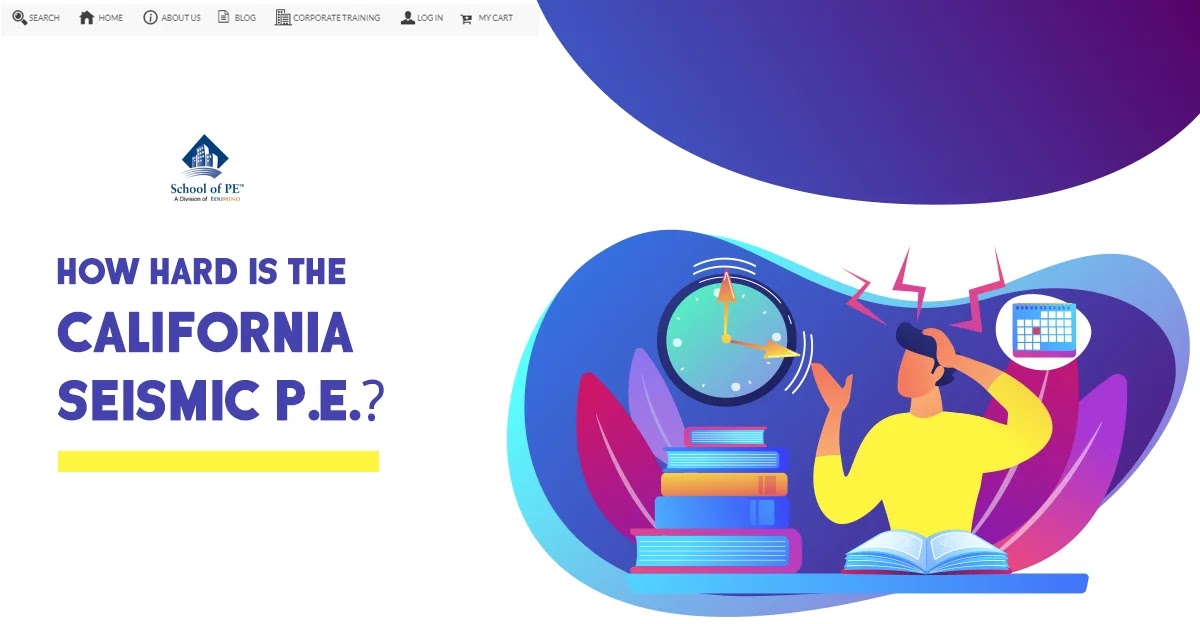Before I answer this question, I feel that I should give you a quick summary of my background: I'm originally from the East Coast, meaning that I never took a course in seismic engineering at any point in my education. I dove in headfirst when I moved to California and decided to take this exam. I remember being told "it's easy!" by so many people, only to fail the first time I took the exam. The second time around, I studied hard and was able to pass.
Personally, I found the exam to be challenging, but not tricky. With the right preparation and a good understanding of the principles of seismic engineering, this exam is very doable. To me, the level of difficulty comes down to several factors, which I'll get into here:
Table of Contents
1. The exam is fast
We're talking 55 problems in 2.5 hours. Gone are the days of 40 questions in 4 hours (assuming you've passed the national P.E. exam). This breaks down to just over 2 minutes per problem. There will be some definition questions, but don't rely on these to give you extra time on the calculation-based questions. My experience was that there are a lot of calculations to be done during the exam, so make sure you're prepared to tackle these with the necessary speed.
2. It matters that the engineers who pass this exam are proficient in seismic engineering
Understanding the code requirements and engineering philosophy behind seismic engineering could not be more important if you plan to practice engineering in California or any other seismically active region. As structural engineers, we design for a "life safety" criteria, which is literally another way of saying our work could be the difference between life and death for ourselves and our fellow citizens. That's just to say, if this exam seems hard, it's for good reason. I have a great respect for this exam and the way it pushes the engineers of California to be true experts in what we do.
3. Not everyone learned seismic engineering in college
I firmly believe that this exam will be "hard" or "easy" based on where you went to college-literally the geographical WHERE. I went through both undergrad and grad school without taking a single course on seismic engineering, so this exam challenged me to turn everything I know sideways and learn new material. While I was doing that, my California native colleagues were saying to me, "The Seismic P.E. is easy! It's just everything we learned in college!" If you're not from California, that's OK. See this as an opportunity to get up to speed.
4. Do you really want to do this again?
This question is how I've approached each of these licensing exams-The F.E., the national P.E., and both California state exams. You're going to put your life on hold (to some extent) to prepare for these exams. It's so worth it to apply yourself now, pass, and never look back. There is nothing wrong with over studying!

Bottom line: this exam is hard. It's designed to be hard so that we, and the rest of the population, can have confidence in the engineers designing our structures. But you made it this far! If you're reading this, you likely have one or more degrees in engineering and achieving that was a challenge too. I have no doubt you can rise to this challenge and succeed.
No comments :
Post a Comment